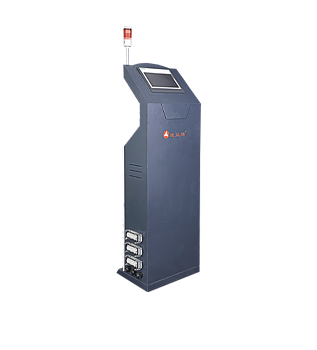
There are significant differences between fully automatic feeding machines and manual feeding machines in multiple aspects, mainly reflected in work efficiency, ease of operation, safety, and level of intelligence.
1. Work efficiency
Fully automatic feeding machine: adopting intelligent manufacturing technology, it can achieve fast and accurate feeding of various materials, greatly improving production efficiency. It is not limited by time and space, and can achieve 24-hour continuous production. During the production process, it can automatically classify and store materials, making production management more convenient.
Manual feeding machine: relies on manual control by operators, and work efficiency is constrained by human factors such as worker fatigue and skill level, which may lead to low production efficiency.

2. Convenient operation
Fully automatic feeding machine: equipped with high-precision sensors and control systems, capable of identifying the type and size of materials, and intelligently controlling them according to preset programs. It is easy to operate and reduces the need for manual intervention.
Manual feeding machine: It requires operators to manually control the feeding process according to production needs, which is relatively cumbersome to operate and easily affected by human errors.
3. Security
Fully automatic feeding machine: reduces the risk of manual operation, enhances the safety of the production process, and reduces the incidence of accidents caused by human factors.
Manual feeding machine: There are certain safety hazards during operation, such as workers being injured due to improper operation or accidents caused by unstable factors during material handling.
4. Intelligence level
Fully automatic feeding machine: As a part of intelligent manufacturing, it has a high degree of intelligence and can achieve seamless integration and intelligent control with the entire production line.
Manual feeding machine: The degree of intelligence is relatively low, mainly relying on the skills and experience of the operators.
Overall, there are significant differences between fully automatic feeders and manual feeders in terms of work efficiency, ease of operation, safety, and level of intelligence. With the continuous development of industrial production, fully automatic feeding machines have gradually become the mainstream choice in modern industrial production due to their effective, intelligent, and safe characteristics.
